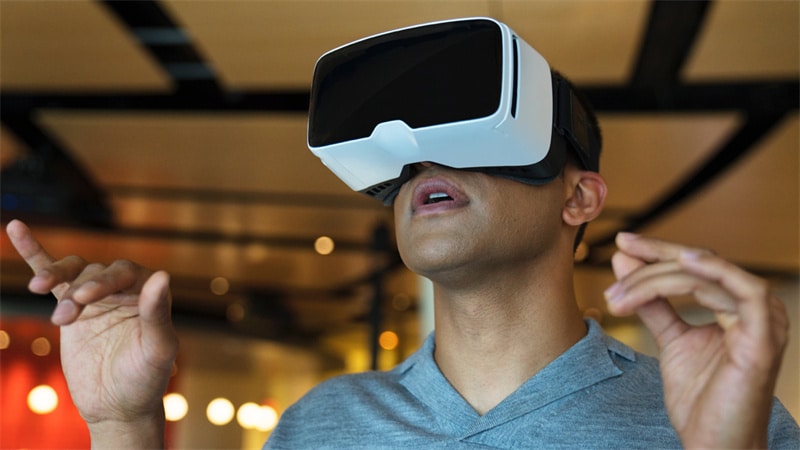
The battle against substance abuse is at a critical juncture in the rapidly evolving world. Technology is becoming a formidable ally in this endeavor.
Substance abuse affects individuals, families, and communities, and its challenges are clear. Conventional treatment methods often miss the mark, leading to relapses and frustration. But what the coming-age technology is rewriting the script?
The importance of this article lies in its exploration of how technological innovations are revolutionizing substance abuse treatment. These innovations promise personalizing care, enhancing efficiency, and extending access to needy people.
The Role of Substance Abuse Treatment Software

Substance abuse treatment software offers numerous benefits. Firstly, it enables healthcare specialists to create customized treatment plans for each patient. By analyzing a patient's history, progress, and needs, the software can suggest tailored interventions and track the effectiveness of these over time.
Another crucial role of this software is in improving communication and engagement. Patients can access resources, receive reminders for appointments or medications, and even participate in virtual therapy sessions through user-friendly interfaces. It not only makes it more accessible but also empowers individuals to take an active role in their recovery.
Telehealth and Virtual Support
Telehealth and virtual support offer a lifeline to individuals seeking help, especially in remote or underserved areas. These technologies bridge the gap between patients and healthcare providers, making access to treatment more convenient and efficient.
One vital aspect of this transformation is integrating substance use monitoring solutions, which are crucial in virtual treatment platforms. With substance use treatment software, healthcare providers can manage patient records, treatment plans, and progress. It ensures the confidentiality and security of sensitive information.
According to Accumedic Computer Systems, these virtual tools enhance the quality of care by offering real-time communication between patients and providers. Through telehealth interaction, medical facilities can include video consultations, group therapy sessions, and instant messaging for immediate support.
The beauty of telehealth and virtual support lies in their flexibility. Patients can access these services from the comfort of their homes, eliminating barriers such as transportation and scheduling conflicts.
It not only extends treatment reach but also reduces the stigma often associated with seeking help for substance abuse. Telehealth and virtual support are ushering in a new era of addiction therapy that is more accessible, personalized, and patient-centered.
Wearable Devices and Mobile Apps
Wearable devices, like smartwatches and fitness trackers, can play a significant role. They can track various health metrics, such as heart rate, sleep patterns, and physical activity. According to Behavioral Health Business, treating addiction and preventing overdose are two areas where wearable technology has shown promise.
These tools can monitor a patient's relapsing triggers, promoting awareness and damage minimization. They could also see overdose warning signals and notify caregivers or medical specialists.
The source also states that it's crucial to keep in mind that the use of wearable technology may cause privacy issues. Therefore, it is advised that consumers choose it voluntarily and without facing consequences. Technology needs to be accessible to everybody and not just be found in expensive smartwatches.
Ultimately, data from wearable devices can be utilized to develop prediction models for addiction therapy. However, it is crucial to proceed cautiously to prevent unintended harm, including improper medication administration.
Mobile apps are another critical component. These apps can help users set reminders for medications, therapy sessions, or support group meetings. They can also offer journaling and mood-tracking features, allowing individuals to record their emotional and mental states. Such data can be invaluable for both individuals and their healthcare providers in making informed decisions about their therapy.
Data Analytics and Predictive Tools
Data analytics involves collecting and analyzing vast amounts of information, such as patient histories, treatment outcomes, and environmental factors. This data can help healthcare providers identify trends and correlations that might not be apparent through traditional methods.
Predictive tools take this further by using machine learning and artificial intelligence to anticipate a patient's needs. These tools can forecast relapse risks and provide timely interventions, potentially preventing setbacks.
The best use case of such type of tools that help in data capturing was reported by Health IT Analytics. To comprehend how patient variables affect treatment outcomes, Cumberland Heights, an alcohol and drug addiction rehabilitation center, used data science technology.
They collected information on patients, treatments, and results to evaluate risks such as recurrence, people leaving despite medical recommendations, and suicide.
It helped them to identify individuals at higher risk by regularly updating risk assessments and using predictive algorithms. Following treatment, they could perform evaluations of patients' encounters involving law enforcement, attendance at recovery groups, and additional outcomes.
It allowed them to help them understand what an effective recovery entails and how to deliver the skills they need to succeed. It shows how substance abuse therapy becomes more responsive and individualized by leveraging data analytics and predictive tools.
Virtual Reality and Therapeutic Gaming

Virtual reality therapy provides a controlled environment where individuals can confront and manage triggers and cravings. Through VR, they can simulate scenarios that challenge their resolve to stay sober while in a safe and supervised setting.
Therapeutic gaming takes a similar approach but in a more gamified fashion. Interactive games are designed to help individuals develop problem-solving skills, improve impulse control, and manage stress.
Virtual reality will make rehabilitation more engaging and interactive. For instance, according to VCU News, a virtual reality (VR) setting known as TST Retreat has gained attention. It is created to support those struggling with addiction and psychological disorders on their recovery journey.
This fully immersive virtual reality platform, created by a visual effect and a psychologist, incorporates elements from cognitive-behavioral therapy. It enables users to connect through their values and hobbies.
Patients can enjoy virtual travel while exploring open-world virtual surroundings and finishing courses, quizzes, and exercises. It is a supplement to standard therapy, expanding the reach of therapists and providing patients with an enjoyable opportunity to improve their treatment.
Thus, as technology continues to advance, the future of substance abuse treatment looks increasingly promising.
Future Trends and Possibilities
Expanding telehealth services is likely to continue, making professional support accessible to more individuals, even in remote or underserved areas. It's not just about connecting with therapists; telehealth can also facilitate peer support, connecting people with shared experiences.
Advances in wearables and mobile apps will continue to enable individuals to actively manage their recovery journey. It will help them stay on track with medication, appointments, and self-monitoring. These tools will become even more user-friendly and informative.
Final Thoughts
From data analytics and predictive tools to virtual reality therapy, technology is revolutionizing addiction treatment. These innovations are breaking down barriers and making treatment more accessible and personalized. Patients can actively manage their recovery with wearable devices and mobile apps, while telehealth connects them with support from their homes.
The future holds even more exciting prospects with AI-driven interventions and ever-evolving solutions. Technology is transforming the landscape of addiction care, offering hope, support, and a brighter future for individuals seeking recovery.










